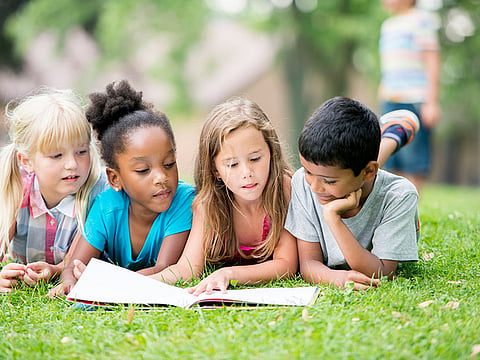Is the summer break too long for kids?
Research says school summer break should be no more than six weeks

Dubai: It’s an all-too-common scenario: children doing their fractions or ratio and proportions in a jiffy now and then losing them just one summer later.
Adults are not the only ones who forget. Children, too, even with their young minds, “forget” some of the lessons they learn in school after a summer break in what researchers call the ‘summer learning loss’.
The US Based National Summer Learning Association defines summer learning loss as the phenomenon where young people lose academic skills over the summer.
This learning loss based on Harris Cooper’s research, was first conducted in 1996, updated in a paper in 2003 and until now remains unchallenged. The research suggests that children learn best when instruction is continuous. This is because any long break in the rhythm of instruction can lead to forgetting and will require “a significant amount of review of material when students return to school”.
Fiona Hodgkins, teacher, author, and educational consultant at Didicimus Education based in Singapore, agrees that long school calendar breaks affect children’s retention.
“When there is a break of more than six weeks, as is common in the British Educational system, for example, learning is interrupted. This break is even longer in the American system with their emphasis on summer camps. In Dubai, most international schools, whatever their educational background, break for such for a long period because of the summer heat, so this break definitely interrupts learning,” Hodgkins, also a former UAE expat, told Gulf News.
Research shows that holidays are too long, and this is as educationally valid today as it has ever been ... but a lot can be done to prevent regression.”
The same research estimates that there is an average loss of one month across most subjects over a long break, but even more so with mathematics with as much as 2.6 months average loss.
Data suggest that children regress more in subjects like maths and spelling because these are skills that are best learned through constant exposure and practice. Who wants to tackle numbers and test one’s math skills when hitting the beach is more fun, anyway?
Digital parenting
Another challenge, Hodgkins said, is the rising trend of digital parenting. Dedicated parent-and-child interactions are slowly being replaced by social media and other digital distractions as some working parents are more and more trapped at work even in the confines of their homes to provide for the family.
“This is sometimes where tuition comes in: paid professionals who work on a 1:1 personal basis with children doing things that parents don’t have time to do,” Hodgkins said.
Hodgkins, however, cautioned parents against leaving their children in summer schools without considering some crucial aspects like the teacher-pupil ratio.
“Interestingly enough though, Cooper’s research shows that summer schools are more effective when they have low staff to pupil ratios. So, it seems that those large scale industrial ‘keep-the-kids-out-of-the-way-summer-schools’ will have little benefit apart from keeping a child occupied unless they are supplemented with some good quality 1:1 adult time too,” Hodgkins explained.
So how long should summer breaks be? Cooper suggests that ideally, schools should try to restrict summer holidays to no more than six weeks.
In the UAE, this may be not possible due to the high temperatures in summer months.
Hodkins said the long summer break can be beneficial still if children are allowed to do what kids do mixed with meaningful activities with their family.
“So to wrap up, yes, research shows the holidays are too long, and this is as valid educationally today as it ever has been, but there is still a lot that can be done to prevent the regression, while still enjoying the summer break relaxing and enjoying quality family time,” she said.
Hodgkins’ tips on how parents can beat summer learning loss:
As Maths and Spelling suffer the most, parents could provide some practical exercises in these areas to ensure that skills do not regress.
Reinvent the age old tradition of WRITING thank you letters or news about the holidays and actually posting them to family and friends.
Take children to libraries or bookshops; encourage them to read; read the same book as them so that you can engage them in conversation about what they are reading.
Schedule some educational activities such as visits to museums and galleries too. Take time to stop, read and discuss the captions. Buy the guide book, read and discuss these afterwards. Don’t just assume that by visiting these places children have taken them on-board.
You could ask your child to research and plan the next outing.
Watch films – maybe with a literary or historical focus - but ensure you discuss them afterwards!
For students moving into the Sixth form, particularly those starting new subjects like Politics or Economics, it is advisable for parents to consider organising some private tuition though. Children “burnt-out” after GCSEs are the ones likely to regress the most, and given the enormous step up between GCSEs and Sixth form study, it is prudent to get them ready for the new school year so that they are ready to make the most of their start to their Sixth Form studies.



